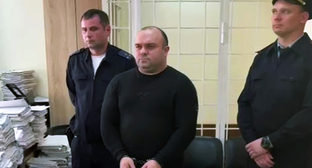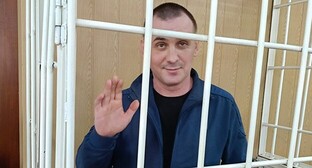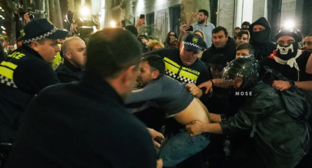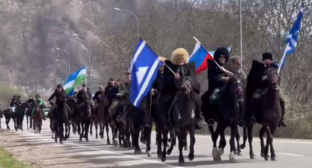08 May 2003, 17:02
The Don civil council
State body on Don at the end of 1917 - the beginning of 1918.
It is created in December, 1917 in Novocherkassk during lifted in the Don area the Army government of the Don cossacks of mutiny, A.M.Kaledinym is headed. It was financed by a Entente. In the chapter of the Don civil advice(council) there was a triumvirate: general M.V.Alekseev (the finance, questions nation-wide internal and foreign policy), general L.G.Kornilov (the organization and command of Voluntary army), ataman A.M.Kaledin (management of the Don area and command by the Don cossacks). Also entered: from Voluntary Army - general A.S.Lukomsky and I.P.Romanovsky (Denikin, elected a member of the Don civil advice(council), in session did not participate); from cadets - M.M.Fedorov, prince G.N.Trubetskoj, A.S.Beletsky, millionaire N.E.Paramonov, V.A.Stepanov and personally P.N.Miljukov; from the Army government - his(its) chairman general M.P.Bogaevsky, P.N.Ageev's socialist; from socialist-revolutionaries - S.Mazurenko and K.M.Vendzjagol'sky, and also B.V.Savinkov and P.B.Struve.
The basis of activity of the Don civil council was the political program of Kornilov (so-called "Kornilov's Constitution"), which proclaimed all-democratic liberties and destruction of privileged classes; restoration of freedom of the industry and trade, the property rights, denationalization of banks; formation of Russian army on the voluntary basis; introduction of a general obligatory elementary education; convocation of the constituent Assembly for working out main laws of the Russian constitution and final designing of a political system, decision of an agrarian problem (before that the allotment of landlords rights had been declared inadmissible by peasants); preservation political-economical gains of workers of the period of February revolution in the field of labour rationing, freedom of the working unions, assemblies and strikes, simultaneously - prohibition of sociolization of the enterprises and abolition of the working control; recognition behind separate nationalities of Russia their rights to a wide local autonomy, support of aspirations to the state revival of Poland, Ukraine, Finland; the further participation together with allies in the 1st World War, etc.
Special agents of the Don civil council were sent to Nizhni Novgorod, Kazan, Samara, Tsaritsyn, Astrakhan, Mineral waters (J.A.Slashchev), cities of Siberia and the Far East. At the end of January, 1918 the most part of members of the Don civil council moved together with a staff of Voluntary Army to Rostov. After route in February, 1918 of the Kaledin armies the Don civil council stopped its existence.





Комментирование через Кавказский узел